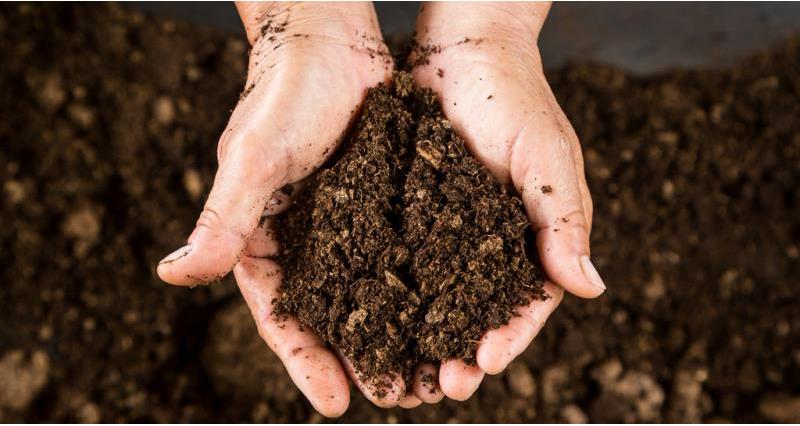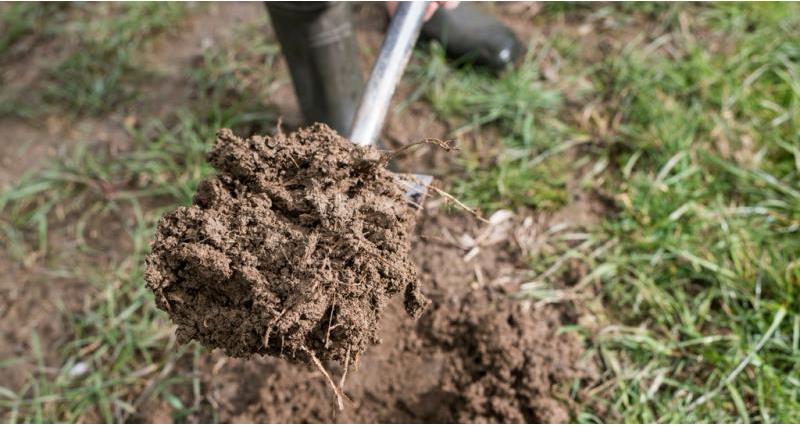With farmers managing 71% of Britain’s iconic countryside the pressure in on to make every hectare count. We are stewards of the land we farm and already
- enhance and protect the environment
- maintain habitats for native plants and animals
- maintain footpaths
- protect watercourses and
- support wildlife species
but without fertile soils, farming is not productive. That’s why British farmers have to prioritise the protection and management of soil. We understand that keeping fields in good condition ensures sustainable production in the future.
Crop rotation
Crop rotation is just one way in which farmers can help soil fertility. Bioenergy production gives the opportunity to diversify the crop rotation, benefiting IPM and soil health as well as supporting food security, investment and environmental benefits.
Today, at the Devon and Cornwall soils alliance meeting, the Environment Agency has published a report which it says aims to widen understanding about the state of soils.

Strategic management decisions
Farmers are increasingly aware of the link between good soil management and increased productivity.
Defra’s 2020 Farm Practices Survey showed that in 2020, 71% of farmers have a programme of soil testing for nutrient indices and 75% for pH. It also found that 32% of farmers keep track of soil organic matter and 64% of farmers know the soil types for each field on their farm.
The more farmers know about their soils, the better placed they are to actively make strategic management decisions to maintain and improve the health of their soil, from informed choices about cultivation methods and crop rotations to decisions regarding the input of organic matter.
The use of compost and digestate can help improve soil organic matter, reduce the use of manufactured fertilisers and means more material is recycled into the land.
Complex biology
Soil is an extremely complex system and there is still much to be researched and learned on a practical scale. Soil biology thrives when the chemical and physical conditions are correct. Soil chemical properties (like nutrient content and acidity/alkalinity) and physical properties are the most commonly measured elements.
Biological parameters are more difficult to measure and understand. Soils are host to very diverse and complex ecosystems – some species like earthworms are known for breaking down organic matter and reducing soil compaction, while nitrogenfixing bacteria around the roots help fix this vital nutrient required for plant growth.
Grassland and common rough grazing
In the UK, approximately 64% of agricultural land is permanent grassland and common rough grazing. This soil acts as a carbon storage area, mitigating against climate change and locking in greenhouse gases that would otherwise be released into the atmosphere.
Peatland
Peatland also plays an important role in agriculture as well as acting as an important store of carbon. Lowland peatlands such as the Humberhead Levels, the Lyth Valley, the Somerset Levels and Moors, and the Fens support a wide range of crops, such as:
- cereals
- grass for livestock
- high-value field vegetables
- potatoes
- sugar beet
- bulbs and flowers.
Upland peatland
Upland peatland areas, such as the Pennines, North York Moors, parts of the Lake District, and in the uplands of the South West, are dominated by livestock farming.
Initiatives
Initiatives like the CFE, Tried & Tested and the Voluntary Initiative have played a key role in helping protect and improve soil health. Statistics from 2014 show 72,000 hectares of land were put into voluntary soil protection measures under CFE. These measures included in-field and watercourse buffer strips to protect against soil erosion, and winter cover crops using seed mixes with a diverse range of root lengths to reduce soil compaction and retain important nutrients.
The NFU will continue to work with industry-led initiatives to emphasise the necessity of maintaining and improving soil health.
Catchment Sensitive Farming
Other initiatives are also having a positive impact. Catchment Sensitive Farming (CSF) gives free training and advice to farmers in selected areas of England with the aim of improving the environmental performance of their farms, and includes soil condition and nutrient management among its training topics.
Integrated Farm Management
LEAF Marque Farms’ Integrated Farm Management is a site-specific farm business approach that uses the best of modern technology and traditional methods to help increase productivity while protecting valuable resources.
Regulation has also been used as a way to protect and enhance soil quality. The Farming Rules for Water, introduced in April 2018, contain rules aimed specifically at soils which require farmers to test their soils and then produce management plans to improve soil nutrient levels and meet crop needs.
Carefully targeted advice and information
But regulation can, at times, be a blunt, inefficient and costly tool. It is possible for the same outcomes to be achieved through carefully targeted advice and information and voluntary action, alongside a greater emphasis on monitoring and research, with proportional and targeted regulation used when other more appropriate and cost-effective measures have failed to achieve results.
Collaboration
Water companies
Water companies are also investing more in working with farmers to educate about, and incentivise, actions that help prevent soil erosion and soil loss to watercourses. One example is Wessex Water’s EnTrade project, which invited farmers to bid for funding to grow cover crops over winter to reduce nitrogen leaching into watercourses, and to return arable land to grassland to prevent soil erosion.
While progress is being made there is more work to do. Projects like the CFE and CSF have an important role to play in providing farmers with the information they need to make further improvements in soil health and the NFU and its members will continue to be involved in these projects.
The way land is cultivated needs to suit the soil and cropping type of each farm. The benefits of organic matter, as well as the encouragement of cover cropping and other organic matter inputs, also need to be more widely explained as does the effects of erosion on watercourses.
Further reading
From NFUonline
- Learn more in this video: Farmers explain the benefits of cover crops for soil health
- See the Game-changing soil mapping service launched to UK
- Read Soil management post-harvest
From the web
- You can find guidance from GOV.UK Remove soil compaction - GOV.UK
- Read Mulch ado about soil health - Natural England
- Future Farming podcast Soil health - Future Farming (blog.gov.uk)
